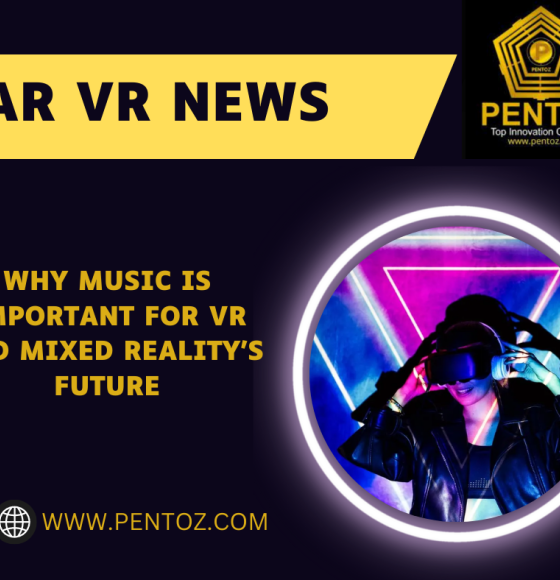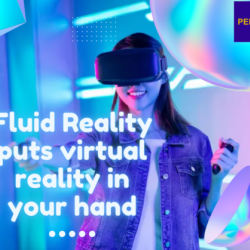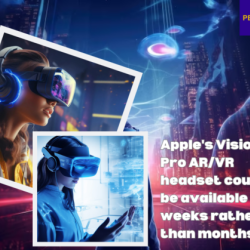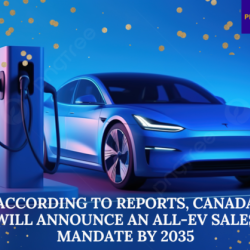The discussion surrounding virtual and augmented reality received much-needed life with the release of Apple’s new Vision Pro headset. Despite Meta’s efforts over the past decade or so to force VR into the mainstream, Apple’s arrival into the market opens the public’s eyes to a considerably wider range of possibilities despite its $3,500 price tag.
However, famous brands and flashy gadgets are only a portion of the story. Truly immersive experiences will serve as the foundation for the real development of mixed reality. Although the amount of chips, glass, and sensors in a device is important, it is the sensory experience that users enjoy inside that device—the visual design, gaming, sound, and music—that will make mixed reality popular.
It will be a difficult road ahead for mixed reality applications that aim to incorporate popular music in these novel and innovative experiences, if the path that mobile apps have gone is any indication.
The Complicated, Crucial Ingredient For Immersive Experiences:
Music roots us in difficult situations, unlike technology, which might make us believe we are actually scaling a precipice or taking batting practice from a major league pitcher. It fosters relationships with people on an emotional, human level that programming cannot. Music has the power to inspire, energise, and relax us. It can even help people recall extremely particular moments and settings.
Frank Fitzpatrick, a creative executive and expert in health and wellness, noted that “one ongoing issue for the past iterations of the VR/AR product and the companies that have developed them has been the lack of sufficient attention to and investment into creating the optimal audio experiences to accompany immersive visual environments.”
Music is exceedingly difficult to incorporate into apps, which is one reason audio hasn’t taken off.
The Evolution Of Music On Social Platforms: Lessons For VR
All of the current social media giants are aware of how crucial music is to their users’ experiences. TikTok, Meta and Instagram, Peloton, and other businesses have also stepped up to provide licensing mechanisms that compensate musicians and labels while making it simple for video creators to incorporate the music they want into their work.
Both record companies, who gain access to new money streams, and artists, who may get their music in front of millions of people outside of music streaming platforms, benefit from these new revenue channels. A Goldman Sachs analysis claims that the next high-growth market will be streaming revenue from new digital platforms, which is predicted to earn more than $16 billion by 2030.
As a mature market that has mostly consolidated down to a small number of extremely wealthy winners, social media works brilliantly with this model—big firms striking deals for its consumers. They have the suits and hoodies required to build the licensing and streaming infrastructure.
In the mixed reality market, where the major competitors are concentrating on gadgets, it will be incredibly difficult to reproduce. The creation of apps will be left to smaller developer companies without the same resources, including licensing the music required to build the immersive experiences that are the industry’s future.
Make sure licensing doesn’t stifle innovation.
The music industry and social platforms had a difficult time figuring out how to collaborate. The music business sued several of the larger sites in several, significant lawsuits and made further threats.
Because the VR industry is currently at a very early, vulnerable stage, many smaller mixed reality app producers risk going out of business if they are obliged to commit a lot of resources to figuring out their music strategy.
This is a pressing issue that app developers must solve, but it’s also a huge opportunity. How to incorporate music into VR and AR experiences was a topic of ongoing discussion at the recent Augmented World Expo in Silicon Valley.
Making tools allowing developers to swiftly write, publish into production, and iterate on software has given rise to an entire industry. To incorporate popular music into the experiences they design, mixed reality app developers require the same for music.
The future of the sector depends on its capacity to forge intimate, emotional ties with customers that keep them putting on the headset repeatedly. Nothing like music fosters that bond.

















